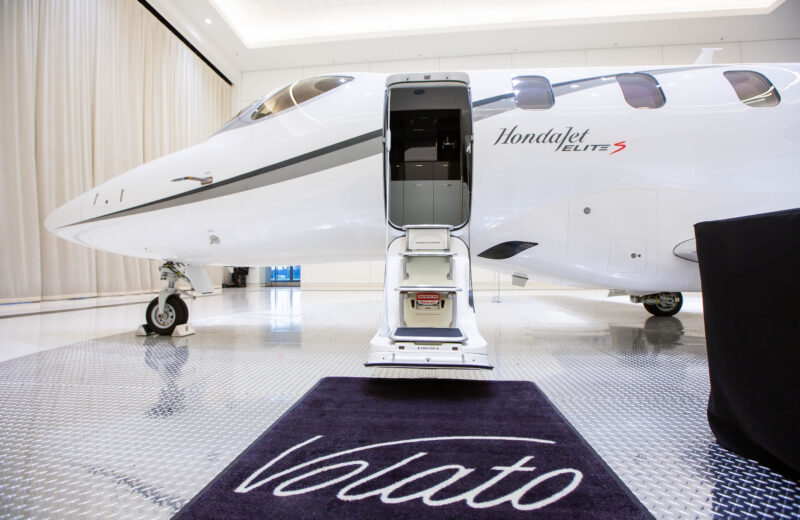Volato’s focus on efficiency sets it apart

Last week, Volato joined the not-so-enviable list of private aviation flight companies to go public through a Special Purpose Acquisition Company (SPAC) merger.
SPACs or “blank cheque companies” as they are often called, emerged as a promising vehicle for private companies to go public in 2020. The appeal of SPACs lay in their speed and efficiency, allowing companies to go public more quickly and with less regulatory scrutiny than a traditional IPO.
However, investor sentiment in the private aviation space for SPACs has changed over the last two years. Mostly due to the mediocre performance of companies that took the SPAC route for listing. Share performance of WheelsUp and various advanced air mobility companies have put a big question mark on whether SPACs are the right way to go about raising new funds for aviation companies looking to expand their operations.
These questions have prompted some business aviation companies to shelve their plans to pursue the SPAC route for listing.
But despite these concerns, Volato went ahead with its Proof Acquisition Corp. (PACI) SPAC merger and began trading on the New York Stock Exchange under the ticker symbol SOAR. In addition to the merger, PACI also closed an additional $12m in private investments and $14m in Series A Preferred Equity financing.
This brings the total amount of new capital raised by SOAR, operating one of the world’s largest HondaJet fleets, to over $60m – together with the conversion of Volato’s convertible debt. Following the merger, SOAR stock went up 88%. A lot of the merger’s success had to do with Volato’s approach to private aviation and their asset-light business model.
The company boasts of a strong revenue base diversified across its offerings. In 2022, it reported revenue of $96m – mostly from its fractional ownership ($45m) and aircraft management ($35m) business. The remaining $16m came from the company’s jet card programs.
Volato’s business model is simple. Bring the benefits of whole aircraft ownership to the fractional customer, while filling residual fleet capacity with in-house software solutions.
“I think what’s most unique about us is that … our fleet focus is entirely on light jets, with the HondaJet. And we’re also unique in that our fractional program allows for unlimited use and revenue share, which is a departure from the typical fractional ownership,” said Matt Liotta, CEO, Volato while speaking at the Corporate Jet Investor Conference in Miami. But why HondaJet? “I specifically went on a journey to find what I thought would be the best, most efficient, jet for four passengers or fewer. That’s what we saw as a market opportunity. We had a limited number of airplanes to look at, and we thought the HondaJet made the most sense for that.”
Consumers are also looking for flexible solutions. With private flight costs skyrocketing during the last two years, selling less costly seats on efficient jets hits the bullseye for users. And high interest rates have become a major consideration for consumers looking to invest.
“One of our unique aspects is that we’re an asset-light company, so we don’t own any planes. So, interest rates aren’t affecting us, in that sense. I think it affects our customers and, their considerations when making, investments in any space, including, this one. So, it’s certainly a consideration for our customers,” says Matt.
Volato’s fractional ownership and revenue sharing puts it in a perfect spot to earn higher market share in the current high interest rate environment.
The company currently has 25 aircraft in fleet with 27 on order (including 11 HondaJets and four Gulfstream G280s scheduled for delivery in 2024.) Volato says its solutions address major pain points in private aviation. High operational costs and restrictive jet plans for consumers are matched with Volato’s flexible fractional ownership model and incentives for customers.
With an asset-light business model and ample liquidity from the recent merger, Volato’s management is focused on targeting the consumer segments which need two-to-four seats and fly for two-to-three hours. Volato’s management says they does not want to become the Uber of private jets. They have a clearly defined market, and they are focused to tap into it while keeping costs in check and efficiency at maximum.
“I think really matters like how much you’re flying; how much you’re contributing to market share and what your growth rate is. And so, for us, we’re a very high growth company that is looking to be a dominant player in the light jet space,” Matt added.
“We’re growing very fast. October 2023 was our best month ever. Since I was here last year, we’ve more than doubled our utilization of owners of deposit card customers of charter. So just everything is up for us.
“We think, as far as we can tell from the data that we’re taking market share.”







